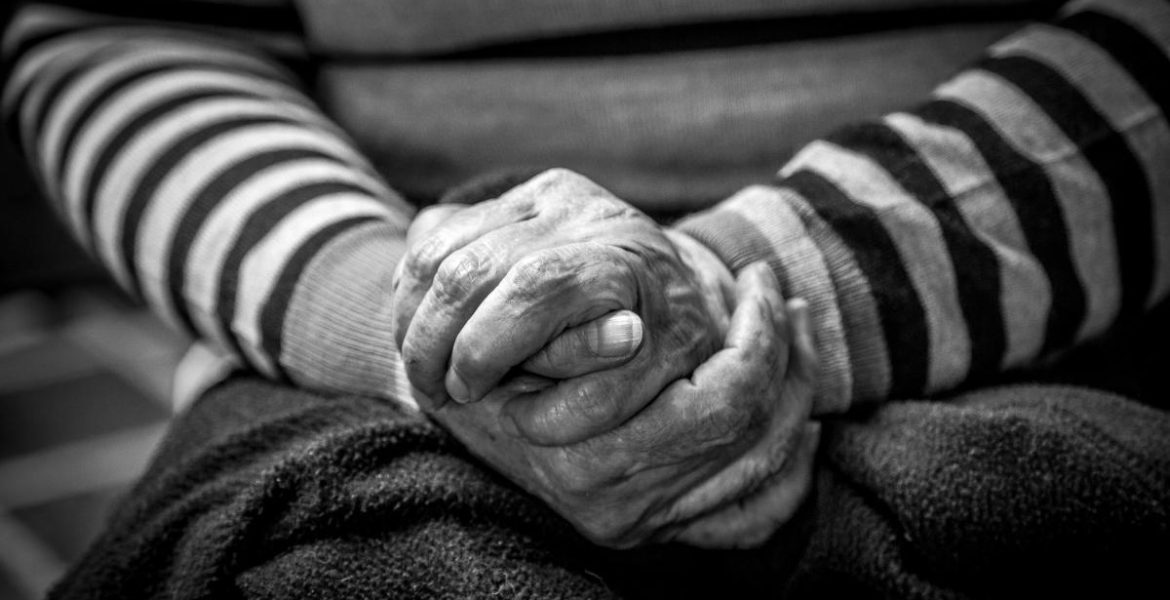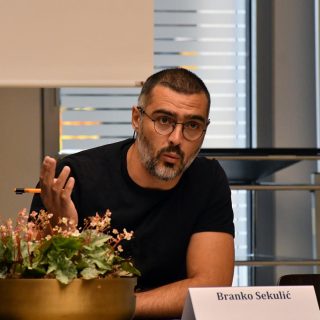Concentration camp survivors, women victims of conflict-related violence, children that survived war trauma – all conflict-related victims who were not members of armed forces and who live or lived in Republika Srpska during the war should be protected, without any discrimination based on their ethnicity or gender. These are provisions of the Law on the Protection of War Torture Victims of Republika Srpska. However, what happens in practice?
Author: Milkica Milojević
It seems that problems occurred at the very beginning, in the process of recognition of the war torture victim status.
The Ministry of Labour, War Veterans and Disabled Persons’ Protection at the Government of Republika Srpska, which is competent for the implementation of this law, has not answered the questions of the portal Impuls about the number of citizens who were granted this status, their ethnicity and rights they exercised.
According to last year’s official data, only 308 victims of war torture were granted this status.
203 victims were granted the right to monthly allowances based on such a status. These allowances were minimal. According to NGOs engaging in the field of victims’ rights, they vary between 180 and 410 KM per month, depending on the level of physical injuries sustained as a result of torture. The right to a monthly allowance is also a pre-requisite for exercising other rights, such as spa rehabilitation.
Mirsad Duratović submitted a request for the recognition of the war-related torture victim status in February 2020. He was the first Bosniak returnee to Prijedor who did this. His goal was to pave the way for his fellow citizens, concentration camp survivors from Prijedor, so they could fight for the status and their rights.
Duratović’s mission failed. He was awarded the status after a lengthy administrative procedure, but the requests of other concentration camp survivors from Prijedor were all rejected.
After the initial rejections, many members of this community gave up on submitting any more requests.
As previously confirmed by the Department for War Veterans and Disabled Persons’ Protection of the City Administration of Prijedor, only four citizens were granted the status of war torture victims.
Among these, Duratović is the only Bosniak, man and former detainee.
-It is questionable whether my request would be accepted today. Five years ago, I submitted a certificate of the International Red Cross, which constitutes evidence for granting the status in compliance with the law. Later on, they refused to accept the requests of other persons by claiming that a certificate of the International Red Cross was not sufficient – says Duratović for the portal Impuls.
Mirsad Duratović, who was detained at the concentration camp Omarska as a seventeen-year old boy, is the deputy president of the National Assembly of Republika Srpska today.
He points out that he was dissatisfied with the application of the Law on the Protection of War Torture Victims of Republika Srpska and that he asked the competent minister Daniel Egić a question regarding this.
He asked him why a certificate of the International Red Cross was not accepted as evidence in the process of award of the war torture victim status to concentration camp survivors, although it is prescribed by law.
-His answer was that ”the authorised person in charge of the procedure may decide, based on his/her assessment, which facts he/she will consider as evidence”. An assessment by a local civil servant thus outranks the law – says Duratović.
Based on such an arbitrary assessment, the request for the recognition of the status of Fikret Alić, a concentration camp survivor from Prijedor, was also rejected, and the photo taken at the concentration camp in Trnopolje in 1992 and published on the cover of the Times Magazine became international news.
Alić’s request for the award of the war torture victim status, accompanied by certificates of the International Red Cross from Ljubljana and Karlovac, where he went after he had fled from the concentration camp, was rejected.
He lodged a complained, but the Ministry of Labour, War Veterans and Disabled Persons’ Protection of Republika Srpska rejected his complaint.
With the assistance of the non-governmental organisation ”Vaša prava”, he initiated an administrative dispute before the District Court in Prijedor and he lost that case as well.
He finally turned to the Supreme Court of Republika Srpska, which declared the ruling of the District Court illegal, and ordered that the administrative procedure for the award of the status be reinitiated.
-Now they are again asking for a bunch of documents, including a new statement at the Department for War Veterans and Disabled Persons’ Protection of the City Administration of Prijedor. I again submitted the certificates of the International Red Cross, but I also stated that I was a witness in the trial against the deputy commander of the concentration camp Trnopolje before the Court of Bosnia and Herzegovina – says Alić for the portal Impuls.
Will the testimony before the Court of Bosnia and Herzegovina help him exercise his rights that he has been fighting for for years? Or will he have to wait for the ruling, since the law states that a request for the recognition of the victim status may also be submitted based on a final ruling in a war crime case?
The slowness of courts, and especially the Court of Bosnia and Herzegovina, therefore makes the position of war torture victims even more difficult.
Law on the Protection of War Torture Victims has been controversial for years, and not only in Prijedor.
This law was adopted in 2018, publicly supported by NGOs, especially ”Trial International” in Bosnia and Herzegovina and foundations ”Udružene žene” Banja Luka and ”Lara” Bijeljina.
One of the first challenges regarding its implementation was the limited deadline for submitting requests. The deadline amounted to 5 years and it expired in October 2023. The efforts invested by the NGO to extend the deadline failed.
Although war crimes are not subject to the statute of limitations, the possibility of victims of such crimes to exercise their rights does decrease.
The analysis ”Challenges and implementation of the Law on the Protection of War Torture Victims of Republika Srpska” carried out by the organisation ”Trial International” in Bosnia and Herzegovina underlines, among other things, that such a limitation of the deadline is not in compliance with the UN Convention against Torture and Other Cruel, Inhuman or Degrading Treatment or Punishment.
The authors of the analysis also point out a series of legal and procedural barriers and social problems faced by the victims.
One of the potential reasons for a small number of requests for the award of the status mentioned in the analysis is the fact that decisions on such requests are frequently taken by former veterans of the Army of Republika Srpska employed at departments for war veterans and disabled persons’ protection.
It is stated, among other things, that bodies that decide on the status of victims frequently insist on a certificate of the Centre for the Research on War, War Crimes and Search for Missing Persons of Republika Srpska as a crucial piece of evidence, although it is clear, as stated, ”that this centre does not dispose of data about all victims”.
Mirsad Duratović also points out this problem.
-Frequently, victims are registered at the Centre for the Research on War, War Crimes and Search for Missing Persons based on the statement of two witnesses and are consequently granted the rights provided for by the Law on the Protection of War Torture Victims of Republika Srpska. And the very same law explicitly states that witness statements may not be evidence for the award of the status – says Duratović.
As a result, there is reasonable doubt that nobody wishes to say out loud: that Bosniaks and Croats, victims of crimes committed by the Army and Police of Republika Srpska, are in a more disadvantaged position when it comes to the award of the status and exercise of rights provided for by the Law on the Protection of War Torture Victims of Republika Srpska.
Radmila Žigić, Executive Director of the foundation ”Lara”, says that it is difficult for victims to exercise their rights, because they live ”in an environment of crime denial”.
-In an environment in which crimes are denied, victims face difficulties in exercising their rights or additional frequent barriers in accessing such rights in the form of unnecessary administrative requirements – says Radmila Žigić for the portal Impuls.
She adds that the slowness of courts in sentencing war crimes does constitute an issue, however, the exercise of rights of war torture victims should not depend exclusively on court proceedings.
-There are many other pieces of evidence that clearly demonstrate that someone is a concentration camp survivor, for example – says Žigić.
She points out that the situation is much more sensitive in case of victims of conflict-related violence, since many of them kept silent for decades or gave up at the very beginning of their quest for justice. Many of them left the country, managed to rebuild their lives somehow and refuse to participate in the process, even in court proceedings.
-The law regulating the recognition of rights is frequently insufficient in cases in which there is no safe and enabling environment for access to such rights, without additional victimisation or even discrimination – concludes Radmila Žigić.
And that discrimination is probably present is also evident based on the ”territorial distribution” of victims that were granted such a status. For example, only four citizens were granted such a status in Prijedor, whereas most victims with such a status live in Posavina municipalities, Bijeljina and Bratunac.
According to the analysis carried out by ”Trial International” in Bosnia and Herzegovina, which refers to the data of local communities, these are municipalities Brod (34), Modriča (34) Šamac (32) and Bratunac (41), and the City of Bijeljina (37).
Another story is exercising rights to spa rehabilitation. Last year, the Government of Republika Srpska enabled victims of war torture for the first time to exercise this right. However, out of a total of 750 spots for spa rehabilitation, only 24 were reserved for a public call for victims of torture. Ministry representatives justified themselves by stating that victims ”did not express any interest” in going to a spa therapy.
This year, the situation is even stricter: only 21 victims of war torture will be able to attend a spa therapy paid for from the budget of Republika Srpska, whereas the remaining 729 spots are reserved for family members of fallen soldiers and disabled war veterans of the Army of Republika Srpska.
The text was co-authored in cooperation with the Impuls Portal.
SOURCES
Challenges and implementation of the Law on the Protection of War Torture Victims of Republika Srpska
https://trial.ba/wp-content/uploads/2024/03/TRIAL_ZAKON_ANALIZA_2024_DIGITAL.pdf
Spa rehabilitation project for disabled war veterans, family members of fallen soldiers and victims of war torture
Law on the Protection of War Torture Victims of Republika Srpska
https://vladars.rs/sr-SP-Cyrl/Vlada/Ministarstva/mpb/PAO/Documents/broj%2090%20-18.pdf
Only 24 victims of war torture go to spa therapy
Application deadline for victims of war torture about to expire




